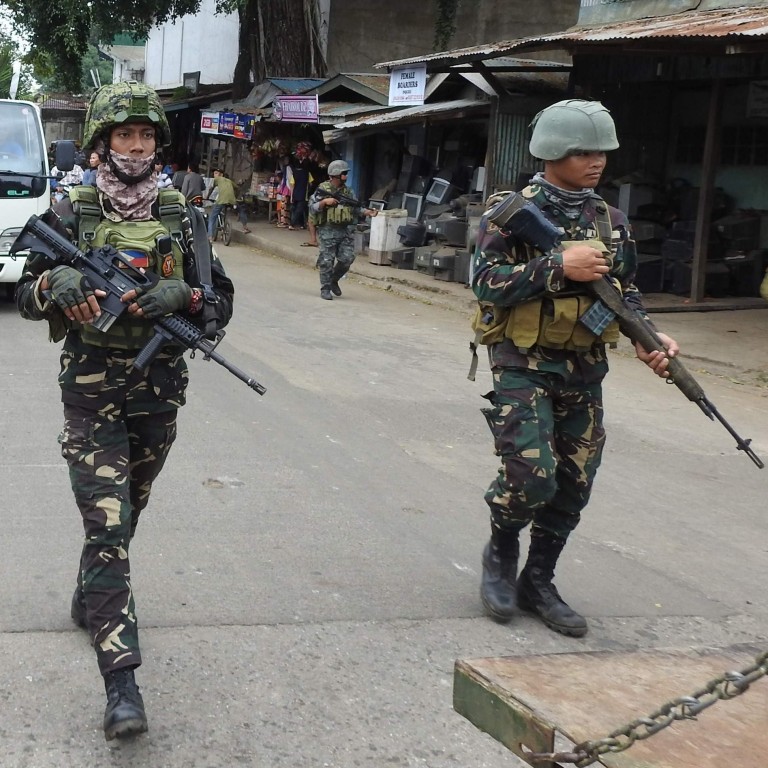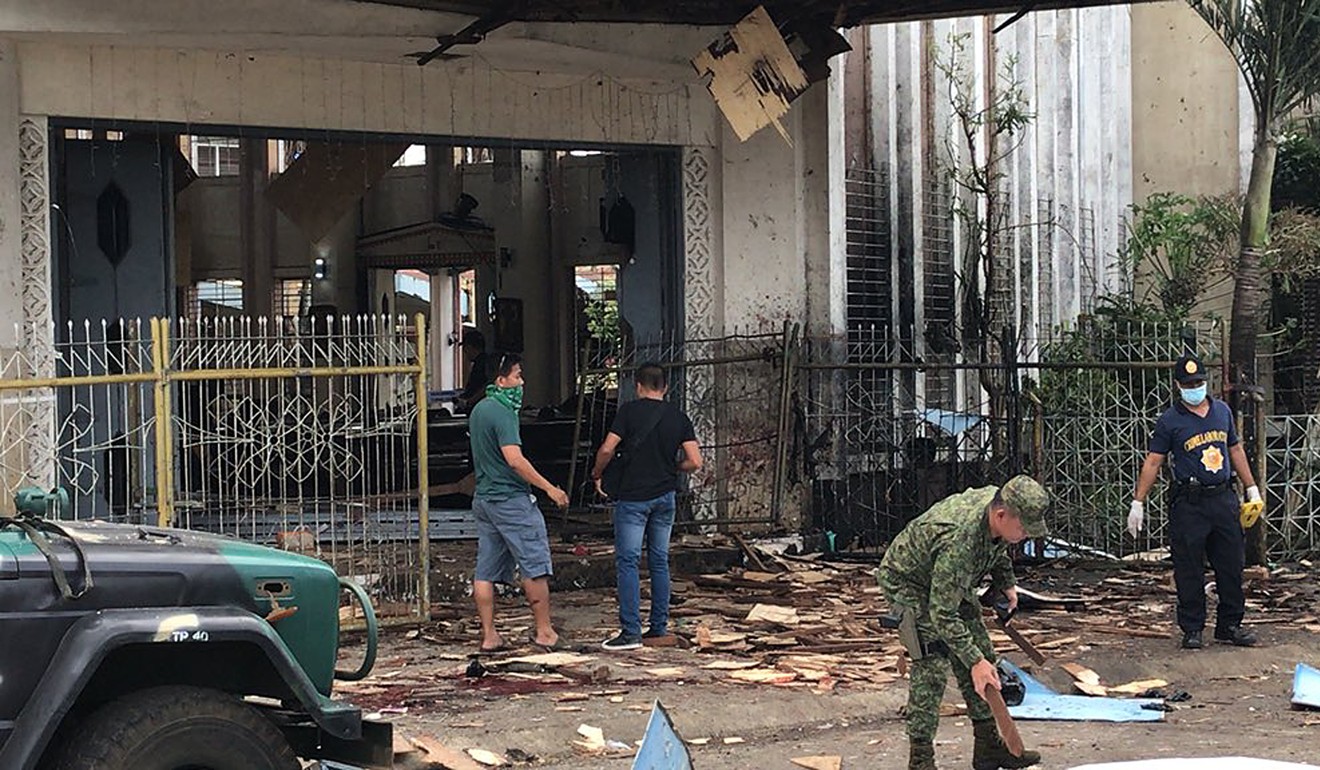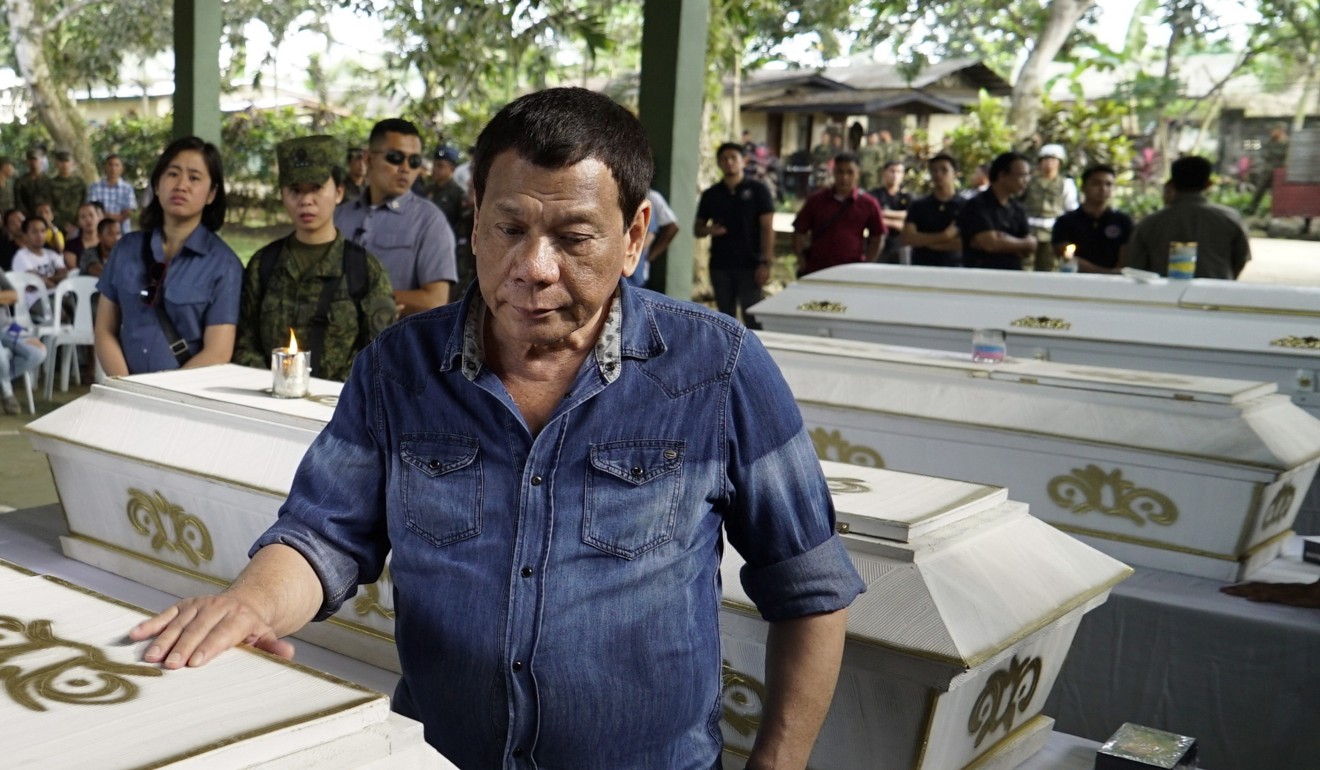
Eight killed in Jolo, south of Philippines, after a ‘fierce firefight’ between soldiers and Abu Sayyaf militants
- The soldiers battled the Abu Sayyaf militants on the southern island of Jolo in a two-hour clash
“It was a fierce firefight,” said regional military spokesman Lieutenant Colonel Gerry Besana, who confirmed the death toll. “It went on for nearly two hours.”
Besana said another five soldiers and 15 militants were wounded in fight between the army and about 150 militant fighters in the jungles near Patikul town in Sulu province.

The Abu Sayyaf, which has about 300 to 400 armed fighters, has been blacklisted by the US and the Philippines as a terrorist organisation because of years of bombings, kidnappings and beheadings in the predominantly Roman Catholic nation.
Abu Sayyaf has multiple factions and affiliates – some of which have pledged allegiance to IS.
Voters give a big ‘aye’ to Muslim self-rule in Philippines’ south
The church bombing came just days after voters resoundingly backed a proposal to give the Muslim minority in the south more control over their own affairs, seen as a significant step toward bringing a measure of peace to a region battered by decades of separatist strife.

There has been speculation that the church bombing may be a diversionary move by Muslim militants after troops recently carried out an offensive that killed a number of IS-linked extremists in an encampment in the hinterlands of Lanao del Sur province, also in the south.
Marawi: A Philippine city liberated, yet still in ruins
The area is near Marawi, a Muslim city that was besieged for five months in 2017 by hundreds of IS-aligned militants, including foreign fighters.
Troops quelled the insurrection, which left more 1,100 people dead, mostly militants, and the heart of the mosque-studded city in ruins.
Duterte declared martial law in the entire southern third of the country to deal with the Marawi siege, his worst security crisis.
His martial law declaration has been extended to allow troops to finish off radical Muslim groups and other insurgents, but bombings and other attacks have continued.

.png?itok=arIb17P0)
